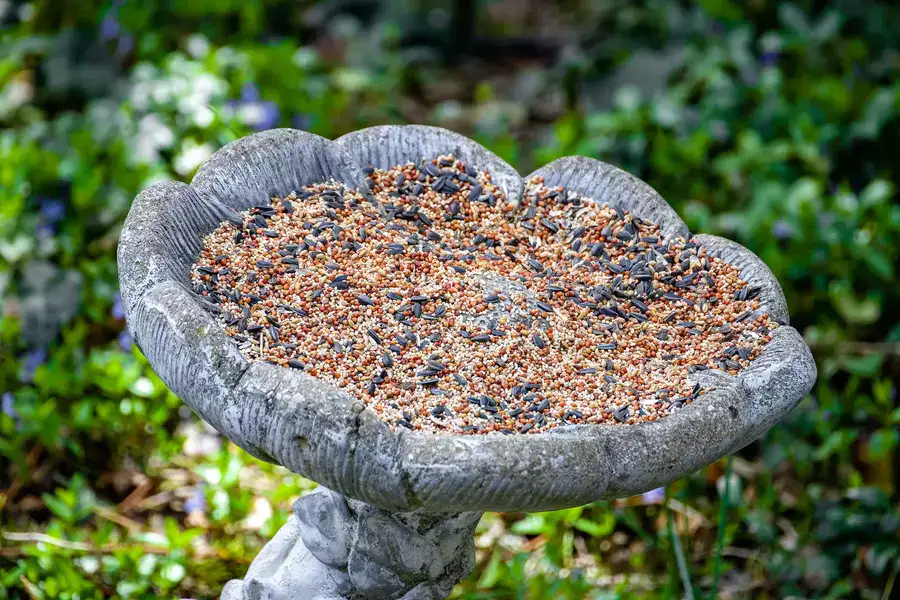Are you tired of buying low-quality birdseed that only attracts a handful of birds to your backyard? Look no further than our review of the best birdseeds for wild birds. With over 50 million Americans engaging in birdwatching as a recreational activity, it's important to ensure that the birdseed you use is top-notch.
Our team of experts have extensively tested various birdseed brands and types to bring you the top options that will attract a wide array of wild birds. From black oil sunflower seeds to Nyjer seeds, we've got you covered. Keep reading to find out which birdseed is the best fit for your backyard and start attracting some feathered friends.
Related: Best birdseed for cardinals
Sunflower
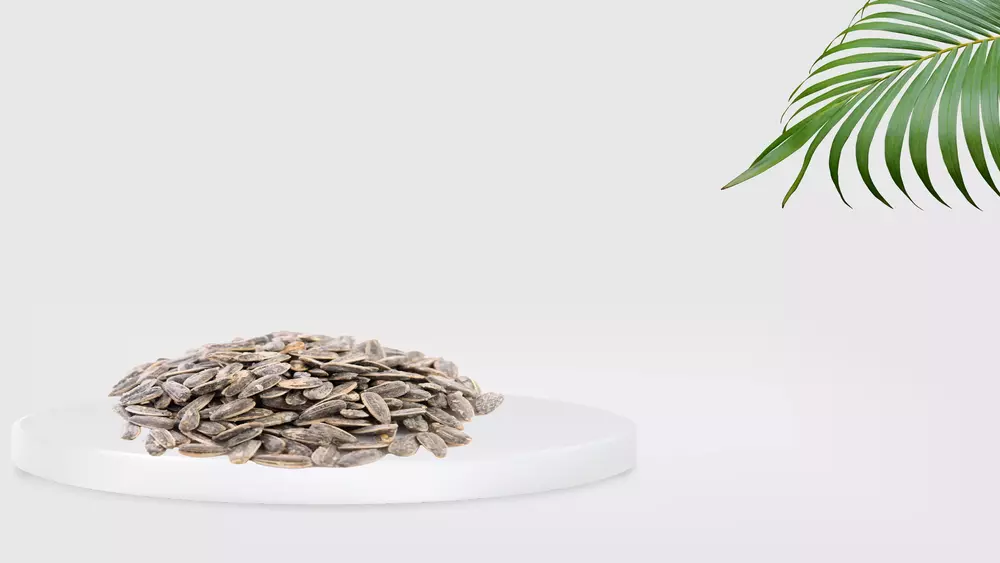
After testing various types of birdseed, we have found that sunflower seeds, specifically black-oil sunflower seeds, are a top option for attracting a variety of wild birds to your feeders.
Black-oil sunflower seeds have thin shells and kernels with high fat content, making them easy for most seed-eating birds to crack open and enjoy. This type of sunflower seed is devoured by almost all birds, including Cardinals, jays, woodpeckers, nuthatches, titmice, chickadees, grosbeaks, finches, nutcrackers, juncos, House Sparrows, blackbirds, doves, and grackles.
In addition to black-oil sunflower seeds, there are also striped and hulled sunflower seeds available. Striped sunflower seeds have a thicker and stronger shell than black-oil sunflower seeds, making them a good option for excluding House Sparrows and blackbirds from your feeder. Striped sunflower seeds are larger and more suited for larger birds with stronger bills.
Related: Best birdseed for summer
Hulled sunflower seeds are easier to eat for smaller birds and are popular at feeders. This type of sunflower seed has already had the shell removed, making it a mess-free option for your feeder. Hulled sunflower seeds attract a variety of birds including Cardinals, jays, grosbeaks, some wrens, goldfinches, finches, chickadees, titmice, nuthatches, juncos, sparrows, towhees, blackbirds, doves, and grackles, among others.
When considering which type of sunflower seed to offer, it is important to take into account the nutritional content. Black-oil sunflower contains 40% fat, 16% protein, and 20% carbohydrates. Striped sunflower has 26% fat, 15% protein, and 18% carbohydrates, while hulled sunflower's nutritional content is not available.
Sunflower seed shells can make a mess, so consider buying pre-shelled seeds or using a feeder that has a tray to catch the discarded shells. Sunflower chips are also a good substitute for corn or millet in birdseed mixes.
Overall, sunflower seeds are a great option for attracting a variety of wild birds to your feeders. Black-oil sunflower seeds are the most commonly used type of sunflower seed and are devoured by almost all birds, while striped and hulled sunflower seeds have their own benefits for attracting specific bird species. Whichever type of sunflower seed you choose, you'll be providing your backyard birds with a nutritious and tasty treat.
Safflower
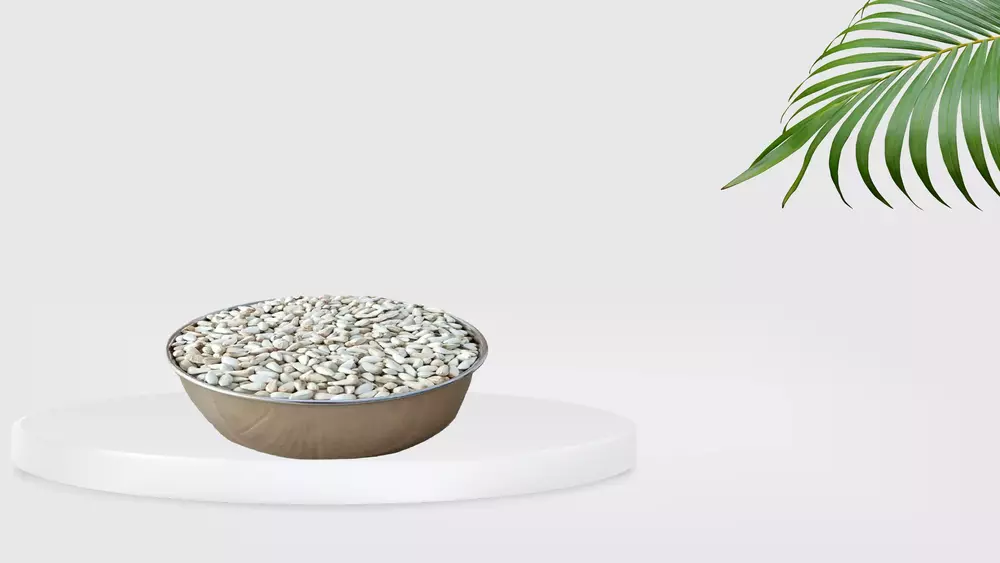
Safflower seed is quickly becoming a top choice among bird enthusiasts who are looking for the best birdseed for wild birds. While it has a tough shell that can be hard for some birds to crack open, it has become a favorite among cardinals, chickadees, and native sparrows. In fact, house sparrows, European starlings, and squirrels don't typically like safflower, but in some areas, they have developed a taste for it.
Cardinals and grosbeaks prefer tray and hopper feeders, which makes these feeders a good choice for offering safflower to your feathered friends. Safflower seeds are a bit smaller than black-oil sunflower seeds and have a tough shell for such a little seed. Squirrels and blackbirds rarely eat safflower seed, making it a "miracle seed" for those looking to protect their bird feeders from unwanted guests.
Furthermore, safflower seeds have an impressive nutrition content, with 38% fat, 16% protein, and 34% carbohydrates. This makes it an ideal choice for birds like finches, titmice, chickadees, nuthatches, and doves.
Also read: Best birdseed for crows
One of the best things about safflower seed is that it helps attract certain birds, like cardinals and finches, while keeping others away. For instance, squirrels are not interested in eating safflower seeds, which can help prevent them from stealing food from your feeders. If you have problems with squirrels and other pest birds, safflower seeds are an excellent substitute for birdseed mixes.
Safflower seeds have a thick and robust shell that can only be eaten by larger birds with strong bills, which is why this seed is a popular choice for bird feeders. Furthermore, safflower seed is preferred by nuthatches, woodpeckers, jays, and house finches. While European starlings and squirrels may not be interested in safflower seeds, they have started eating them in some locations.
In conclusion, safflower seed is an excellent choice for those looking for the best birdseed for wild birds. With its tough shell and high nutrition content, safflower seeds attract a variety of bird species while keeping other unwanted guests at bay. So, if you want to attract cardinals, finches, chickadees, and other feathered friends to your backyard, consider adding safflower seeds to your bird feeder.
Nyjer Or Thistle
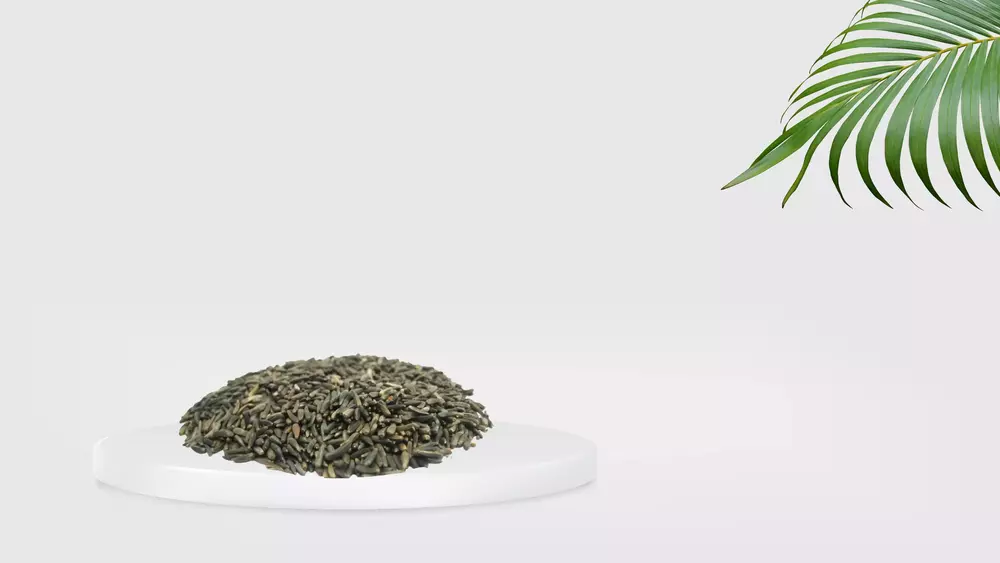
If you're looking for the best birdseed for wild birds, one option to consider is Nyjer or thistle seed. Small finches, including American Goldfinches, Lesser Goldfinches, Indigo Buntings, Pine Siskins, and Common Redpolls, often feed on these tiny, black, needle-like seeds. The plant is now known as niger or nyjer, and is imported from overseas, and heat-sterilized during importation to limit their chance of spreading while retaining their food value.
Although Nyjer seeds can be expensive, you can save money by buying them in bulk. Nyjer seeds are small and thin and one of the preferred seeds for small birds like Clinging Finches to eat. This seed is high in calories, which will help your feathered friends survive the winter.
Nyjer seeds are preferred by purple finches, goldfinches, pine siskins, quail, and redpoll. The seed is light and can blow to the ground quickly, so make sure the bird feeder you are using holds the seeds securely. Nyjer seed (thistle) is a good substitute for corn or millet in birdseed mixes.
Overall, Nyjer or thistle seed is a good option for bird lovers who want to attract small birds to their backyard. These seeds are high in nutrients and will help birds thrive even in colder climates. Although they can be more expensive, buying them in bulk can help save you money in the long run.
White Proso Millet
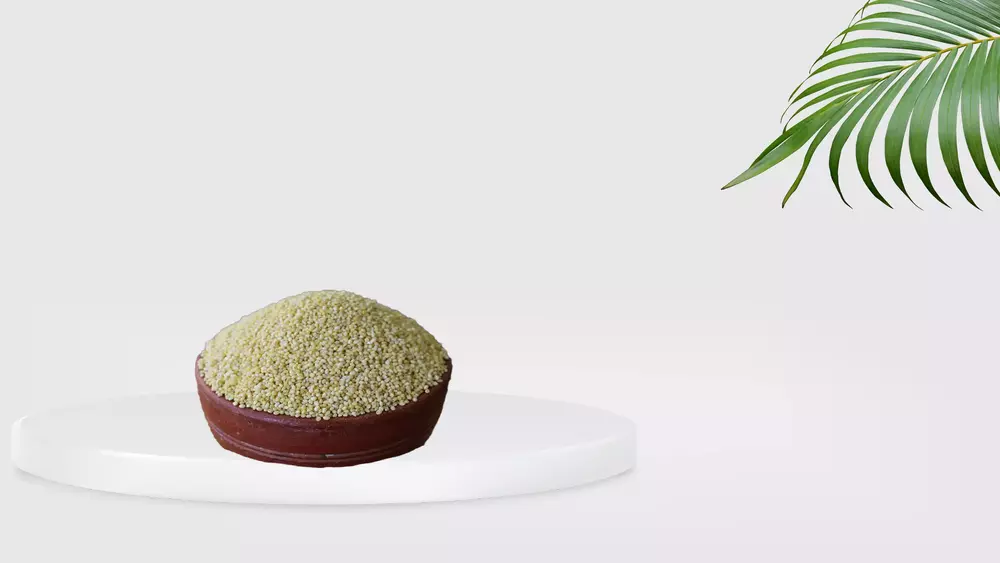
Nutritionally, white proso millet packs a punch, containing 11% protein, 73% carbohydrates, and only 4% fat. However, it's important to note that while white millet is a favorite with ground-feeding birds, it can also attract cowbirds, other blackbirds, and house sparrows, which are not always welcomed visitors to the backyard. As a result, it's best to avoid using millet if these species are present.
One thing to keep in mind is that millet can be messy, as it is often knocked out of feeders by larger birds. Additionally, commercial seed mixes often include a lot of filler seed, including millet, which will be ignored and tossed aside. Therefore, it's best to skip golden or red millet as filler seeds in your pre-packaged mixes.
Overall, white proso millet is a preferred seed among ground-feeding birds and can be used in birdseed mixes with sunflower seed and cracked corn. Its small size makes it a top choice for sparrows, quail, doves, juncos, wild turkeys, and buntings. However, it's important to monitor the types of birds attracted to ensure unwanted visitors aren't causing problems in your backyard.
Peanuts
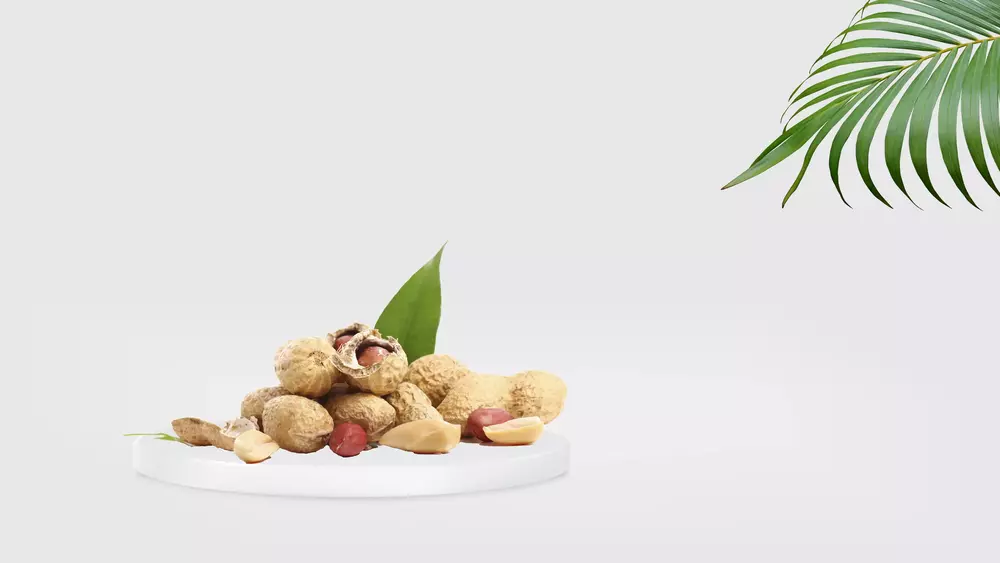
If you are looking for the best birdseed for wild birds, peanuts are definitely worth considering. They are not only a nutritious source of protein and fat for birds but are also very popular among a wide variety of species.
Peanuts are especially beloved by jays, crows, chickadees, titmice, and woodpeckers, among other birds. They are also a favorite of squirrels, bears, raccoons, and other animals that should not be encouraged to feed on your birdseed.
Peanuts come in two forms, in the shell and shelled, and can be fed in a variety of ways. In-shell peanuts can be set out on platform feeders, deck railing, or window feeders, or placed in tube feeders. Shelled peanuts can be offered in a bowl or scattered on the ground.
If you want to attract blue jays, in particular, a feeder full of peanuts will keep them coming back all day. However, make sure to buy unsalted, raw, or roasted peanuts, as salted or flavored peanuts can be harmful to birds.
According to nutrition info, shelled peanuts contain 49% fat, 26% protein, and 19% carbohydrates. A feeder full of peanuts is sure to attract cardinals, jays, nutcrackers, nuthatches, grosbreaks, chickadees, titmice, bushtits, starlings, cowbirds, crows, magpies, ravens, and grackles.
Offering peanuts to wild birds is as enjoyable for humans as it is for the birds. Peanuts can be purchased in bulk and are an excellent option for birdwatchers who enjoy observing a variety of species.
Overall, peanuts are an excellent choice for birdseed, especially if you want to attract woodpeckers, jays, and other nut-loving birds. Just make sure to buy unsalted, raw, or roasted peanuts and watch as your bird-watching experience becomes more exciting.
Milo Or Sorghum
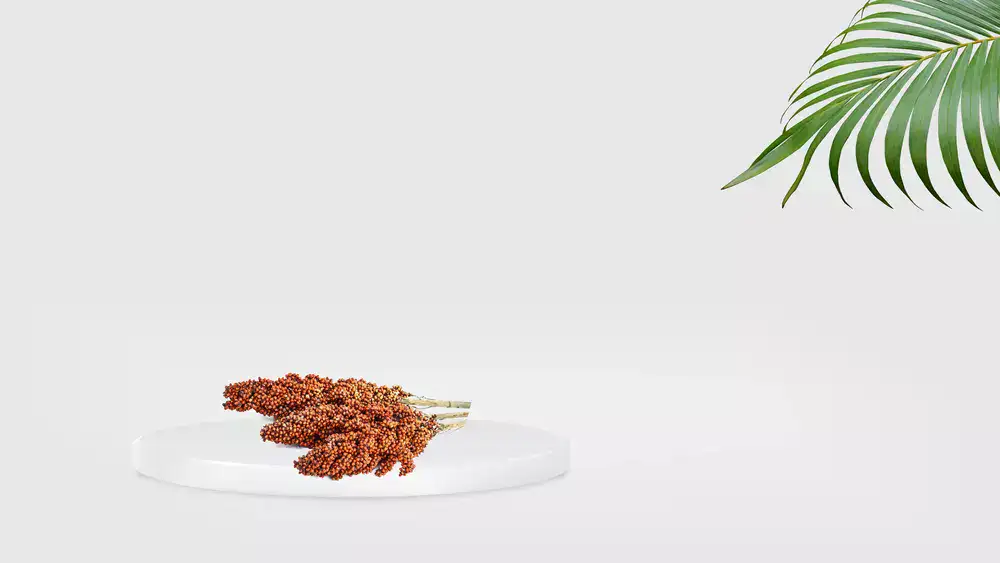
This seed is larger than other types of birdseed, making it a great choice for ground-feeding birds like quail and doves. However, it should be noted that milo is a common filler ingredient in birdseed mixes that wild birds won't eat, so skip it if you're making your own blend as other seeds will attract more birds.
Milo is a favorite among many Western ground-feeding birds like Steller’s Jays, Curve-billed Thrashers, and Gambel’s Quails. They actually prefer it to sunflower seeds, which is a nice option for those looking to diversify their birdseed offerings.
It’s important to note that waste seed becomes a breeding ground for bacteria and fungus, contaminating fresh seed more quickly. So, if you do choose to offer milo as a food option for your backyard birds, make sure to only offer as much as they will consume.
Although birds that eat milo such as Turkeys, quail, pheasants and doves are attracted to it, it can also attract pest birds like European Starlings and House Sparrows. Additionally, it may attract unwanted guests like squirrels and rats, so it’s important to keep the feeding areas clean.
Milo or sorghum seeds are often used as filler ingredients in packaged bird seeds. However, birds typically won't eat milo unless they're hungry and nothing else is available. So, if you do choose to include milo in a birdseed mix, it’s best to use it sparingly.
You should also not confuse milo with white millet, which is a good seed to use at feeders. White millet is a small, round, light grain whereas milo is a large red seed. So be sure to double-check that you’re buying the right type of seed.
In conclusion, although milo is a low-fat "filler" seed found in birdseed mixes, it may not be the most attractive option for wild birds. If you’re looking to attract a variety of birds to your backyard, it’s best to skip milo and opt for other types of seed. But if you specifically want to attract ground-feeding birds like quail and doves, it’s worth giving milo a try. Just make sure to clean up any spilled seed frequently to prevent unwanted pests from coming around.
Cracked Corn
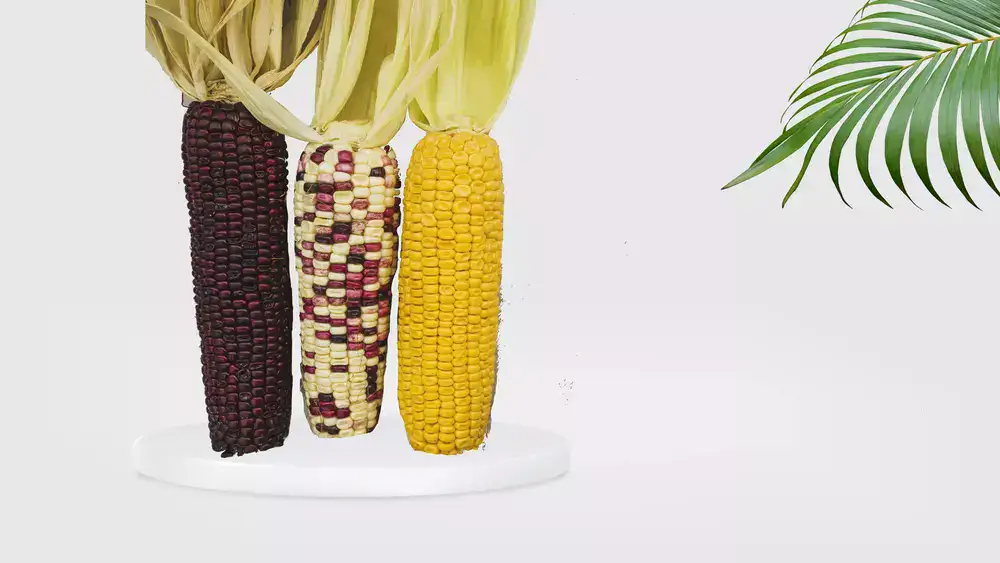
When it comes to finding the best birdseed for wild birds, many people opt for cracked corn as a budget-friendly option. Although it may not be as nutritious as other types of birdseed, cracked corn can still be a great choice for attracting certain types of birds, especially those that feed primarily on grain.
Cracked corn is exactly what it sounds like - whole-kernel corn that has been chopped up into smaller pieces. It's often used as a filler in commercial birdseed mixes, but it can also be offered on its own. The nutritional information for cracked corn varies slightly depending on the source, but it generally contains around 9% fat, 8% protein, and 76% carbohydrates.
As far as which birds are attracted to cracked corn, there are quite a few to choose from. Some of the most common include sparrows, jays, towhees, grouse, doves, quail, grackles, blackbirds, wild turkeys, and ducks. It's worth noting, however, that cracked corn may not be suitable for smaller birds, such as finches and chickadees.
If you decide to offer cracked corn to your feathered friends, there are a few things to keep in mind. First, corn can be messy and may attract rodents, so it's important to clean up any spilled seeds regularly. Additionally, corn can also attract unwanted guests, such as raccoons, bears, geese, and starlings. If you're concerned about this, consider offering the cracked corn in a bird feeder that's designed to keep these creatures out.
Overall, cracked corn can be a great choice for attracting ground-feeding birds, such as sparrows, juncos, and quail, as well as other birds that feed on grain. It's also a common ingredient in many commercial birdseed mixes, so you may already have some on hand. Just be sure to offer it in moderation as part of a balanced diet for your feathered friends.
Questions you might be asking
What is the best birdseed for wild birds?
The best birdseed for wild birds depends on the types of birds that you are trying to attract. However, generally speaking, a birdseed mix that contains a combination of sunflower seeds, nyjer seeds, millet, and cracked corn is recommended.
What type of sunflower seeds should I use?
Black oil sunflower seeds are the best choice for wild birds as they have a high oil content which provides necessary fats and energy for birds.
What are nyjer seeds?
Nyjer seeds, also known as thistle seeds, are small and black. They are a popular choice for many finch species and have a high oil content which helps keep birds warm during colder months.
What is millet?
Millet is a small, round seed that is a common ingredient in many birdseed mixes. It is a favorite among ground-feeding birds such as sparrows, doves, and quail.
Do I need to consider the season when choosing birdseed?
Yes, the season can impact the type of birdseed that is best to use. During warmer months, birds may prefer a mix with more millet and cracked corn. During colder months, a mix with more sunflower seeds and nyjer seeds is recommended.
Are there any birdseed ingredients I should avoid?
Yes, it's best to avoid birdseed mixes that contain fillers such as wheat, oats, and red milo. These ingredients are lower in nutrition and can attract unwanted birds and pests.
Can I make my own birdseed mix?
Yes, you can make your own birdseed mix using a combination of sunflower seeds, nyjer seeds, millet, and cracked corn in varying proportions depending on the birds you want to attract.
Where should I place my bird feeder?
A bird feeder should be placed in a safe location away from predators such as cats and squirrels. It should also be placed in a visible location for birds to easily find and access.
What kind of non-bird seed foods do birds eat?
Birds eat a variety of non-bird seed foods, such as fruits (berries, apples, melons, etc.), insects (mealworms, crickets, etc.), and even nuts (peanuts, almonds, etc.). These foods are high in nutrients and provide birds with a healthier and balanced diet.
What about processed leftover human foods?
It is not recommended to feed birds processed leftover human foods, such as bread, cheese, or meat. These foods can be harmful to birds' digestive systems and do not provide the nutrients they need.
How can you save money feeding birds?
You can save money feeding birds by buying in bulk, choosing less expensive brands of bird seed, and making your own bird treats using natural ingredients.
How to choose the right bird seed for your bird feeder?
It's important to choose the right bird seed for your bird feeder according to the types of birds you want to attract. Some birds like small seeds, while others prefer larger seeds. You should also consider the area where you live and the season of the year when choosing bird seed.
What bird seed and other foods do birds prefer?
Different birds prefer different types of bird seed and other foods. For example, finches like niger seed, while robins prefer mealworms. In general, sunflower seeds, peanuts, and suet are popular among many bird species.
Should you buy a mix or make your own?
Both buying a mix and making your own bird food have advantages. Buying a mix can save time and provide variety, while making your own bird food allows you to control the ingredients and ensure that they are all natural.
What is the best wild bird seed brand?
The best wild bird seed brand depends on the types of birds you want to attract and their preferences. Some popular brands include Kaytee, Pennington, and Wildlife Sciences.
What is the best food to attract wild birds?
The best food to attract wild birds depends on the species you want to attract. Generally, sunflower seeds, suet, and peanut butter are popular choices among many bird species.
Is bird seed OK for wild birds?
Yes, bird seed is safe and healthy for wild birds as long as it is free from mold and toxins. It is important to provide a balanced diet that includes a variety of bird seed and other natural foods.

